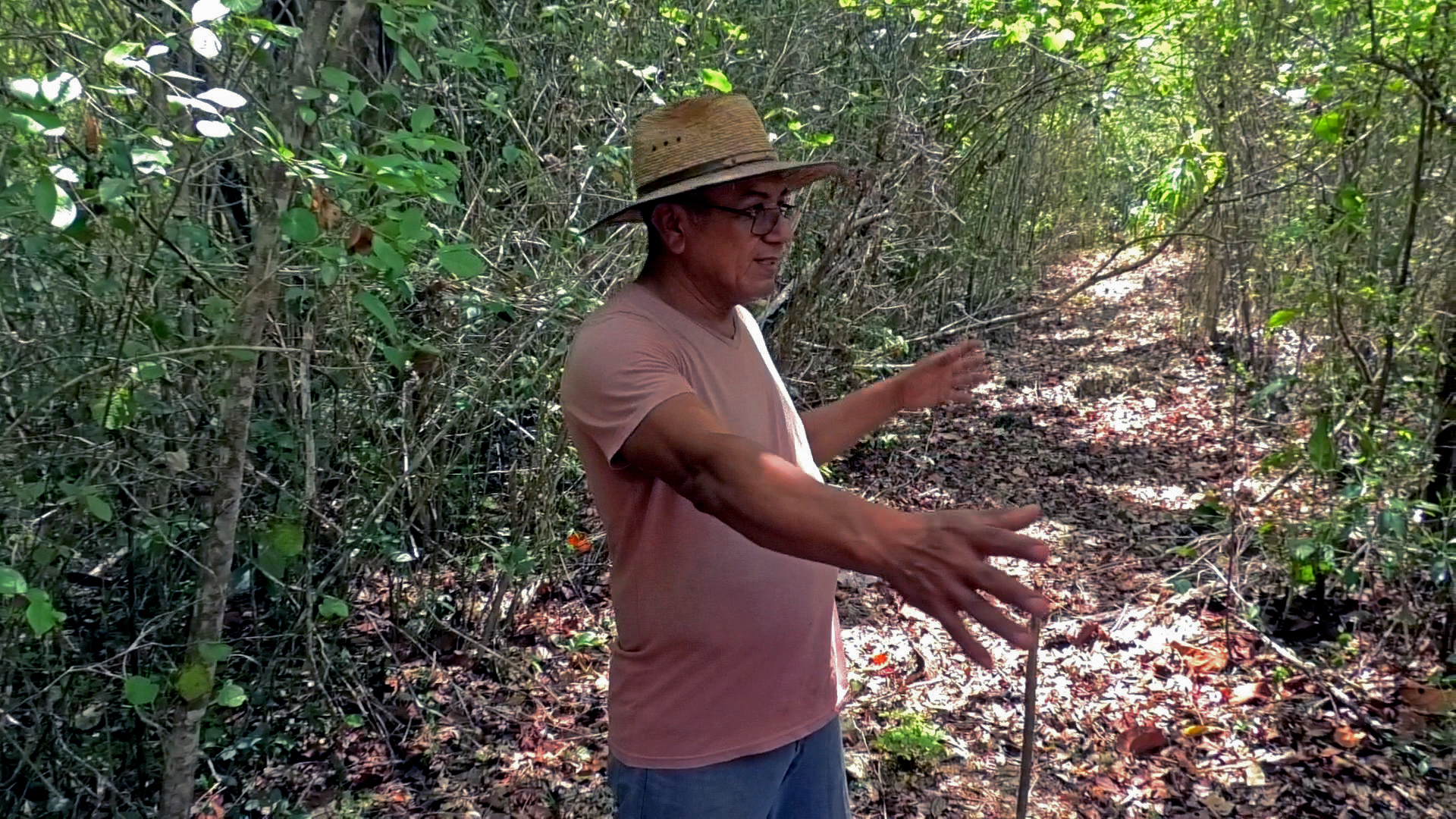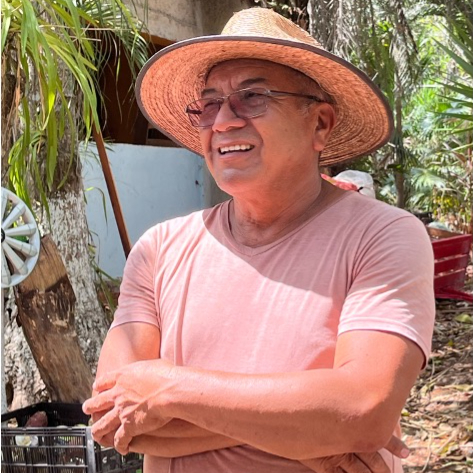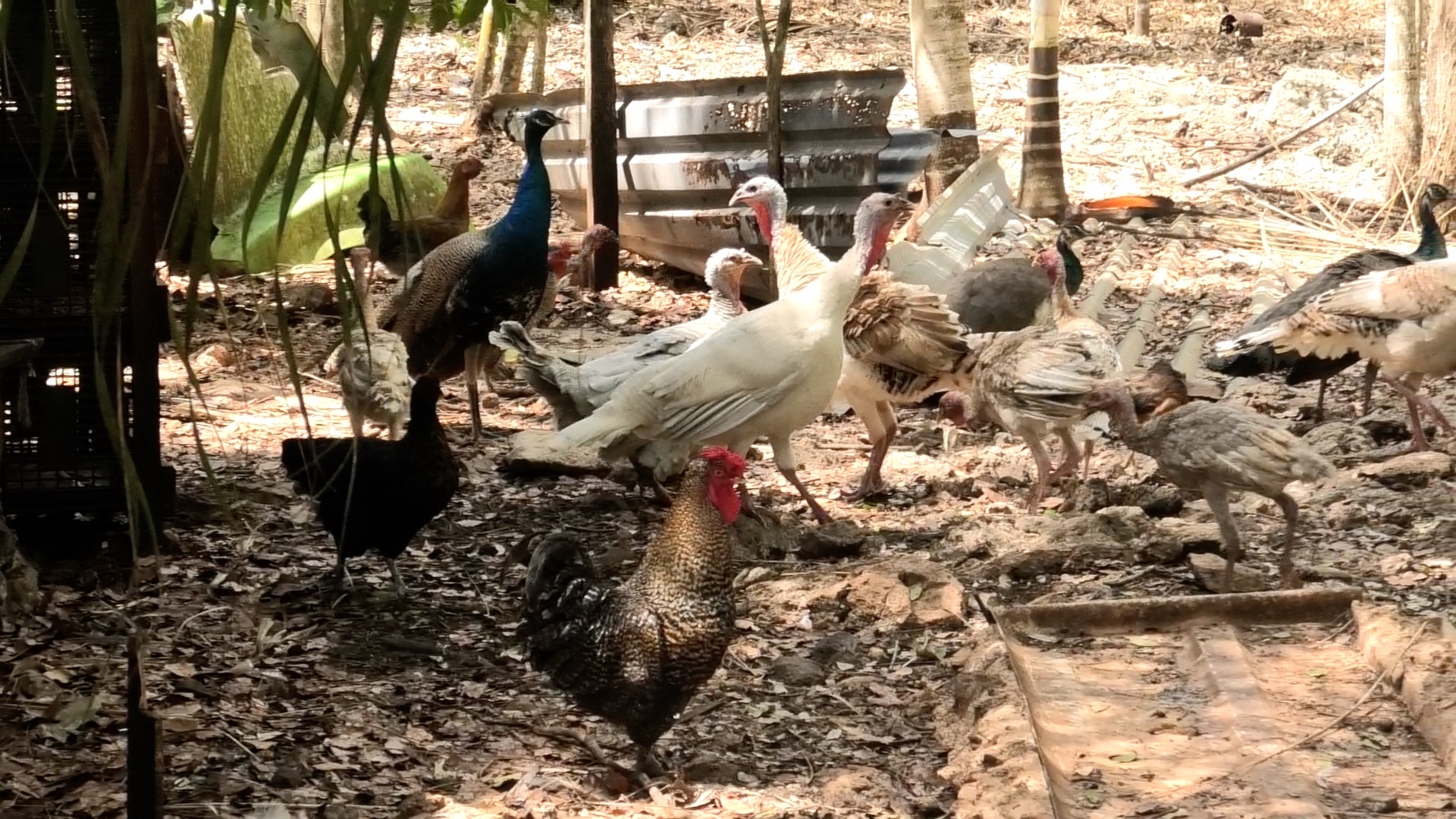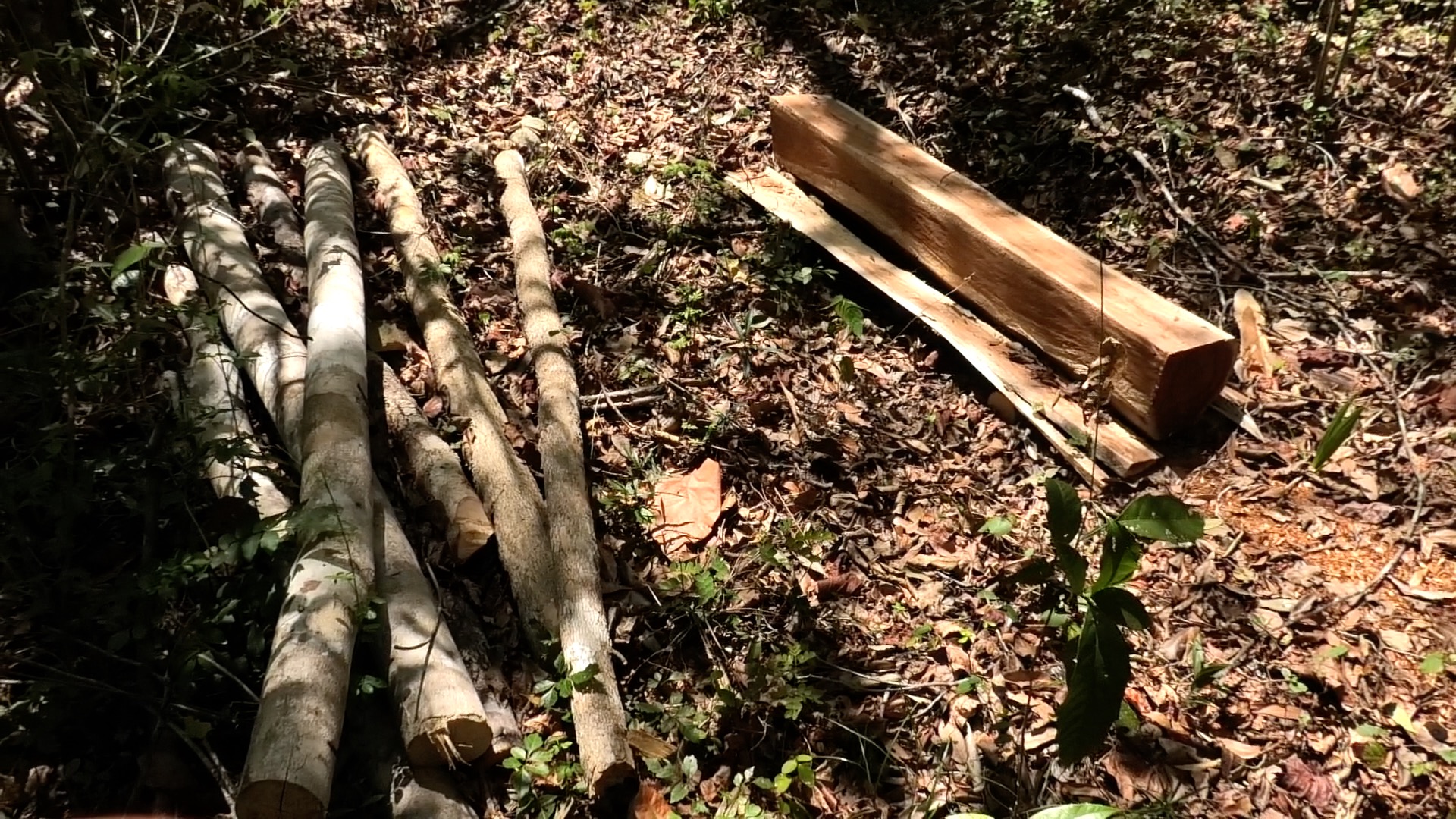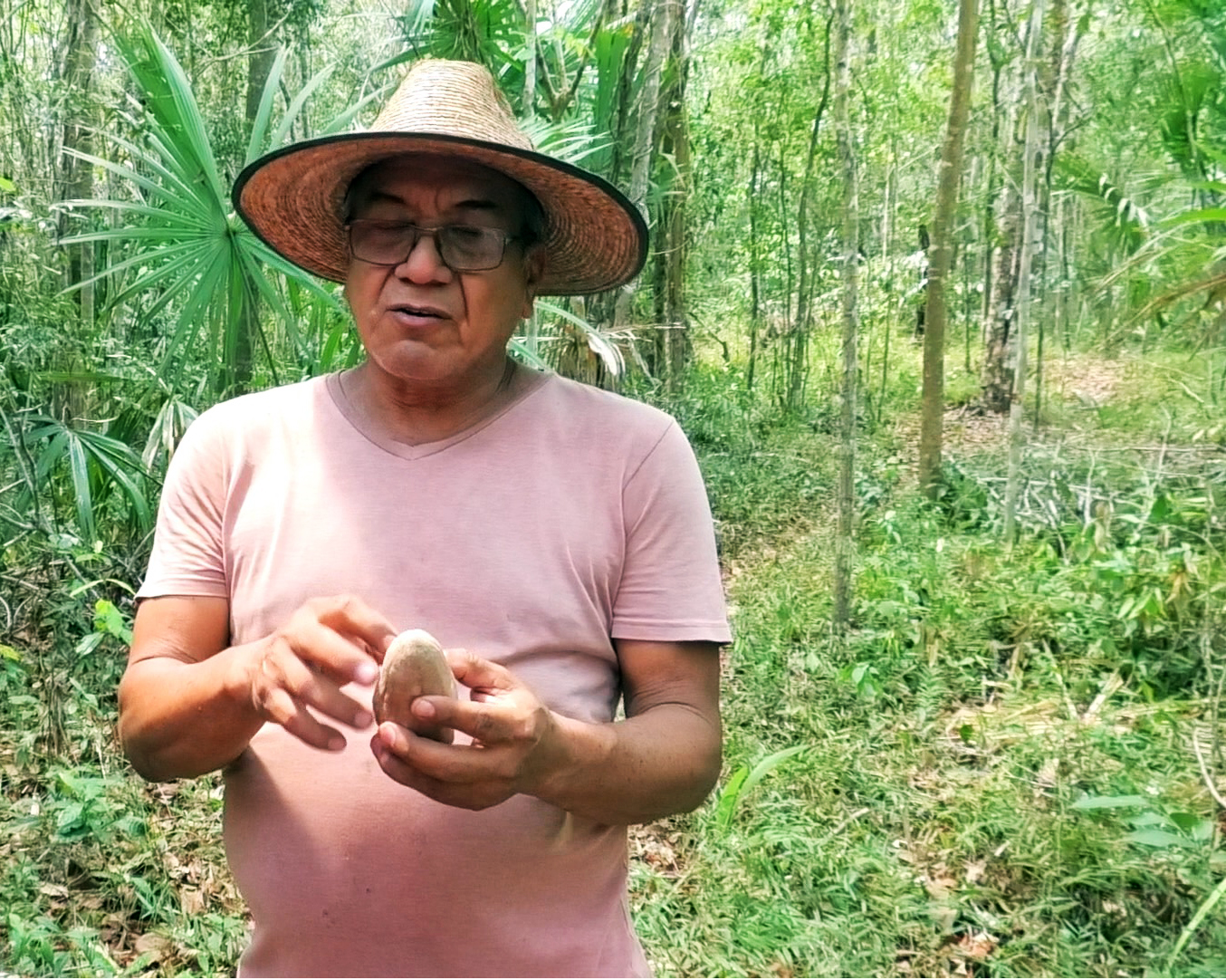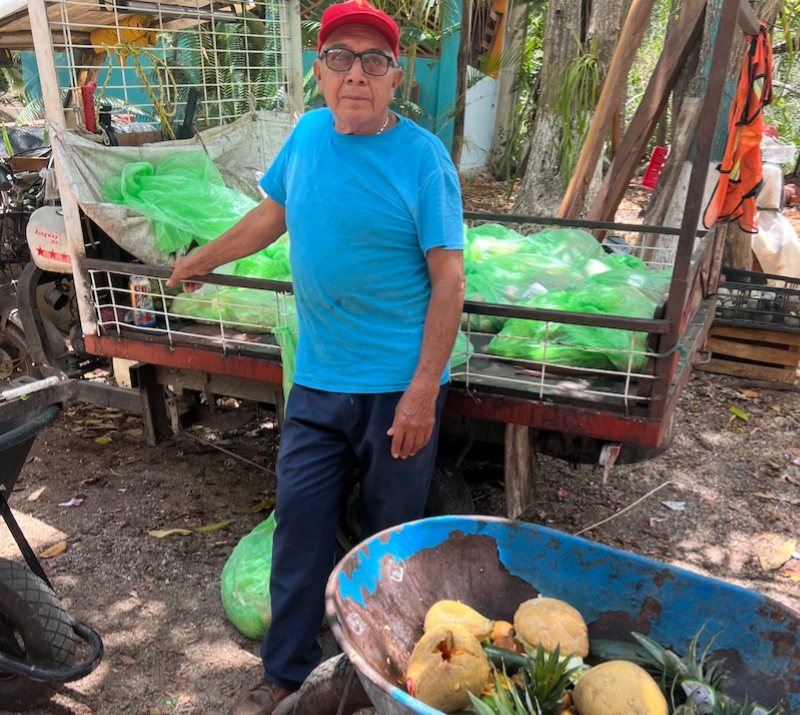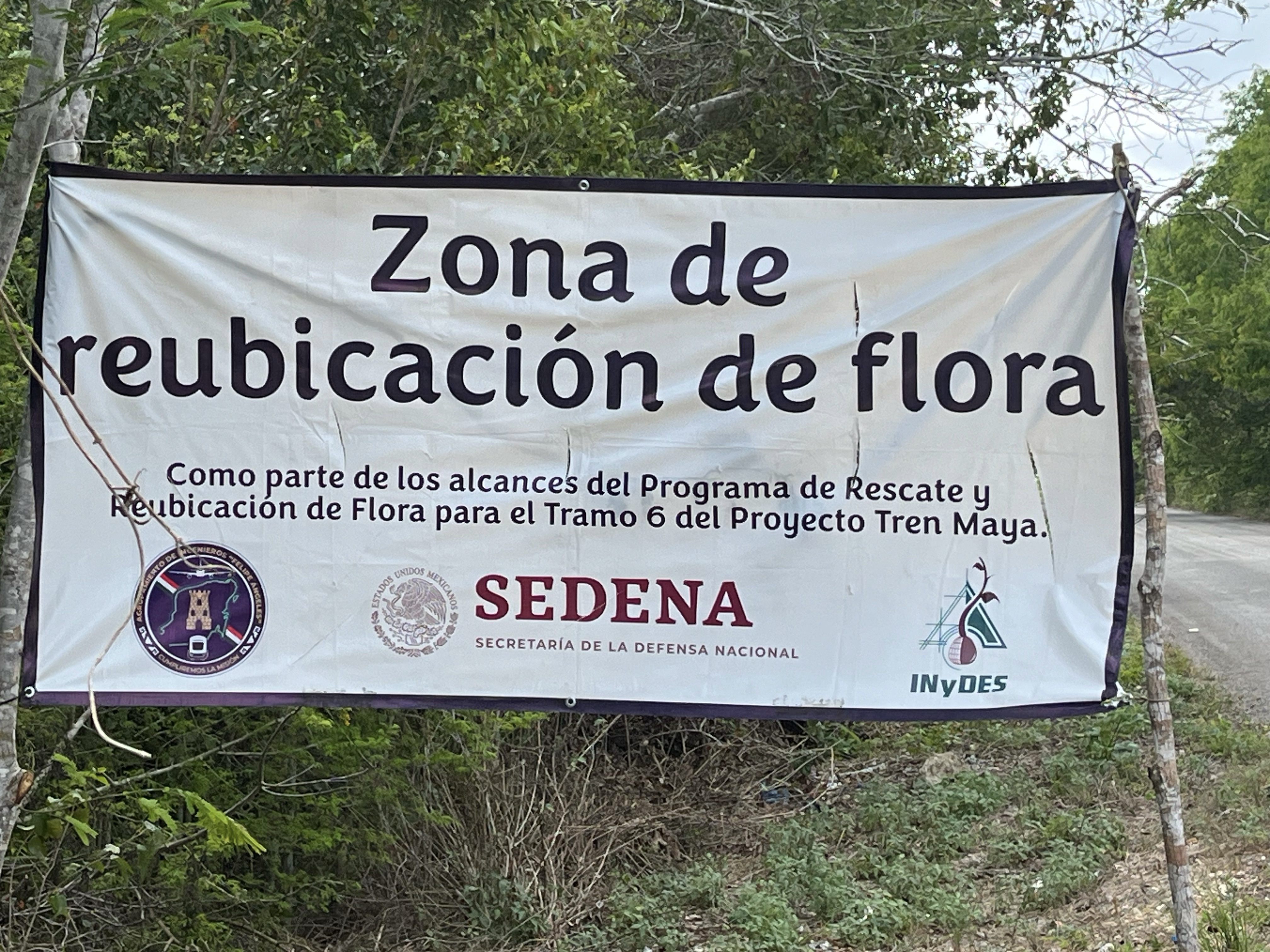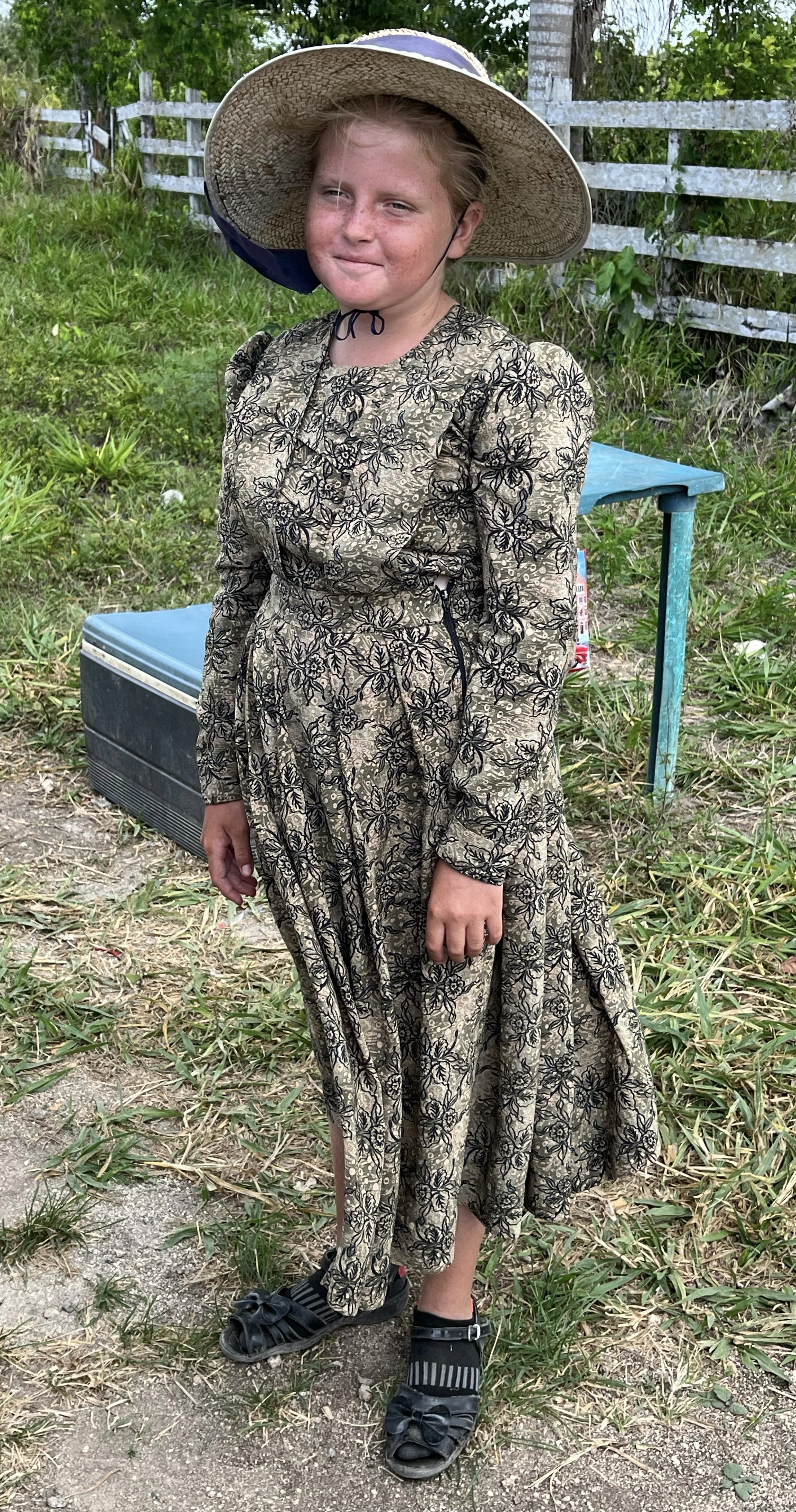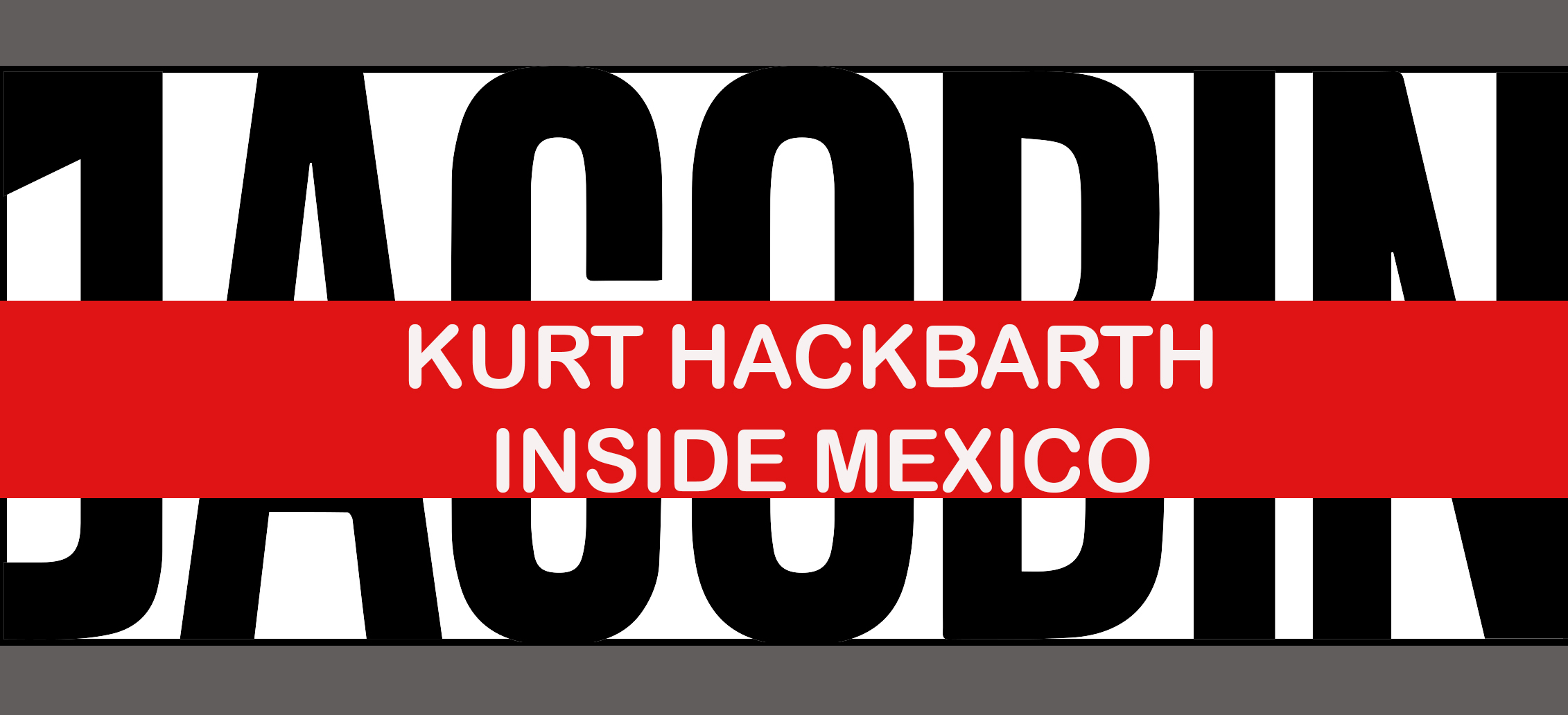|
|
|
|
The weekly newsletter of the Mexico Solidarity Project |
|
Every issue archived online at mexicosolidarityproject.org |
|
|
|
May 22, 2024/ Meizhu Lui, for the editorial team |
|
|
|
Sembrando Vida: Seeding Life |
|
|
Victor Poot on his Sembrando Vida plot |
|
In these times, when we see seeds of destruction and death planted around the world, how wonderful to imagine that instead, we could seed life. Life! And sustainable life, not just for today’s survival but for tomorrow and future generations; and not just for humans but for all the plants and animals whose lives are knitted to our own.
Mexico hasn’t shrunk from seemingly impossible tasks. In 2019, it began the Sembrando Vida program, “seeding life.”
The goal is vast — to involve 400,000 people in reforestation on small portions of land, to which they already have rights, to protect and repair ecosystems damaged by years of exploitative practices from agribusiness, tourism, and the rush for short-term profits. Sembrando Vida supports project participants with monthly stipends of about $250 a month; they are taught old and new organic techniques that protect the earth and everything that lives on it. Millions of trees are being planted.
Sembrando Vida is also an economic development project, seeding life for poor farmers, including the 30% who are women. Farmers plant vegetables, fruits and larger trees. Once they are in the rhythm and can eat, sell, and set aside their produce for the future, the project can suspend their stipends and enroll new participants.
While a program so large and ambitious will certainly include mistakes and failures, it has also been the target of unsupported accusations — that the project is a huge boondoggle, a way to buy off some of the rural population, even that Sembrando Vida actually caused the loss of 73,000 hectares (180,387 acres) of forest cover. When you plant, not every seedling survives: Sembrando Vida is growing, one tree at a time, one life at a time.
Recently, Mayan Train (Tren Maya) researcher Étienne von Bertrab brought three of us from the Mexico Solidarity Bulletin to investigate the environmental, social, and economic impacts of Tren Maya's construction. While not directly related to the train, Sembrando Vida participants along its route contribute to mitigating any forest damage caused by construction. We spent a morning with Victor Poot, a participant in the program for several years, and we bring you his thoughts in this week’s issue.
Can seeding life crowd out the weeds of violence and death? With the alternative of sustainable farming, we can hope that the drug cartels will not have desperate people to recruit. Whatever the hiccups, what could be more important than a program that aims to bring new life to the land and its inhabitants? |
|
For a deeper dive into current news and analysis in English, check out our media website. And definitely see the new English podcast ¡Soberanía! (Sovereignty) with José Luis Granados Ceja and Kurt Hackbarth. They entertain, while dismantling the lies and distortions about Mexico fed to us by the mainstream media. |
|
Don’t miss an issue! Sign up for a free Mexico Solidarity Bulletin subscription. |
|
|
Mayan Values Reflected in Sembrando Vida |
|
Victor Poot is a Mayan farmer in the rural area between the village of Felipe Castillo Puerto and the Tren Maya station being built in Quintana Roo; people of Mayan descent make up the largest proportion of the population. We got to visit his farm and to hear his experience with Sembrando Vida firsthand. |
|
|
Your land used to be part of an ejido, but now you own it yourself, and part of it is now enrolled in the Sembrando Vida program, right?
I love this land. It was my father’s before me. He was one of the original ejidatarios, groups of people collectively made owners of large tracts of land, an ancient form of property management from Mayan times. In 1992, after ejidos were allowed to sell parts of their land to individuals (a provision of the NAFTA trade agreement, ed.), I decided to start the process of buying my land. That was thirty years ago! It’s taken me that long to get the title. I have 100 hectares (247 acres), which I farm on my own. I’m still also an ejidatario, and we govern the entire ejido.
I liked the goals of Sembrando Vida. I’m of Mayan descent. I’m in favor of reforestation and preservation of our native plants and animals, and it helps to get a small stipend every month because farmers can’t count on a steady income. |
|
Even without the project, I’ve been raising all kinds of animals — varieties of chickens, turkeys, peccaries (a kind of wild pig) that run free inside a large fenced area, and a little native animal that is a kind of capybara that sleeps underground by day. All these animals can be used for food. I also planted many different kinds of trees. |
|
|
chickens, turkeys and peacocks |
|
What are the requirements of the program?
Sembrando Vida identified two and a half hectares (about 6 acres) for use. They required three kinds of planting: the first is milpa, the traditional way of raising corn, which is to plant it together with beans and squash; this method doesn’t deplete the soil. The second is to grow fruit trees. |
|
The third is to plant trees as raw material for wood products. These three kinds of planting provide food to eat today, products to sell, and trees for lumber in the future. |
|
|
Tzalam, also referred to as Mayan Walnut, used to make furniture |
|
However, my soil is not good for milpa, it has too much limestone. It also wasn’t good for fruit trees — it’s too rocky and doesn’t have enough water. I do grow trees for wood, these are long-term. It will take 20 years for the cedar trees and 50 for the mahogany to be ready for harvest. |
|
|
However, the program is flexible. It allowed me to substitute some fruit trees that I’d planted on parts of my land not included in Sembrando Vida land. It’s also possible to have some land dedicated to Sembrando Vida in one section of your property and more in another section to piece together into two and a half hectares. |
|
Twenty-four farmers are involved in Sembrando Vida projects nearby, and we have land in common. On the common land, we have our biofabrica (where we make compost) and share a plant nursery. When Sembrando Vida staff come to visit, they help us solve problems and teach us how to improve our methods, particularly for organic farming. To be organic is a requirement; to protect the soil and plants, we don’t use chemical fertilizers or pesticides. While we use organic methods, we aren’t required to be certified. International certification is just too difficult.
How many people work with you? |
|
I do most of the work by myself! I do sometimes have help from my sons and my brother, but I’m the only one living here. My wife and the rest of my family live in the village, Felipe Castillo Puerto. Farming is hard; you have to love it! For those who say we Mayans are lazy, let them come and see how we work! |
|
|
Victor's brother Gilberto with food for pigs |
|
The Tren Maya passes close to here, and there will be a stop near Felipe Castillo Puerto. What has the effect of the train been?
Well, for one thing, I can’t find any agricultural workers to hire. Everyone is working for the train! It has all kinds of jobs that pay well. Besides work directly related to the train, people in the village are renting out rooms even in their small houses for the workers who are here temporarily to build the train and the station, and, of course, all those workers need to eat. Small restaurants or street vendors have business. The train has raised the standard of living in poor villages like ours; Felipe Carillo Puerto was really struggling before.
What will happen once the building boom is over? It won’t go back to the way it was before. With the train bringing people in, I think we’ll see more jobs, but not at the same level as right now — we’ll see.
What do you see as the biggest threats to preserving the natural environment here? Is the train causing permanent damage? |
|
|
A few miles from Victor's farm: "Zone for relocation of plants," managed by the military |
|
Through the program I’m in and other reforestation and conservation projects in this area, the government is doing a lot to protect and restore our natural environment. The biggest threat is agribusiness. |
|
We have a growing population of Mennonites. Because of the law allowing ejidos to sell land to private groups, they’ve been able to buy parcels of land and piece them together into huge farms. More and more Mennonites are coming, acquiring more land and creating agribusinesses. They stay in their own communities and don’t interact with others; they don’t even speak Spanish!
They’re cutting down a lot of forest in clearing the land; they use big machinery and don’t use organic farming methods or pay attention to the soil’s health. I’m worried. As they get more and more land from ejidos, they could come to have a majority and turn ejidos into agribusinesses — the opposite of what we Mayans want. |
|
|
Mennonite girl selling juice on the road |
|
What do you think of Morena, the President’s party?
Our local mayor, who ran on the Morena ticket, is corrupt. He’s a chapulin, or grasshopper, someone who jumps from one party to another just to get elected. But I like what AMLO has done; we need the kind of programs that AMLO started — such as Sembrando Vida — that are helping us in these rural areas. I’m voting for Claudia! |
|
|
|
|
Ecuador raids Mexico's Embassy: A US Dilemma |
|
|
Writer, playwright, and journalist Kurt Hackbarth is a naturalized Mexican citizen living in Oaxaca. His political commentary is regularly featured in Sentido Común, Al Jazeera, and Jacobin. We exerpted the following piece from a recent article in Jacobin. It has been edited for brevity and clarity. |
|
|
On April 5, Ecuadorian police stormed the Mexican embassy in Quito to arrest former vice president Jorge Glas. The unlawful act has put the White House in an awkward position.
Per Article 22 of the Vienna Convention of Diplomatic Relations, the premises of a diplomatic mission are inviolable. That is, unless you’re Israel, which bombed the Iranian consulate in Damascus on April 1. And unless you’re Ecuador, which invaded the Mexican embassy in Quito four days later.
Ecuadorian police, on the orders of President Daniel Noboa, forcibly entered the Mexican embassy, physically subdued chief of mission Roberto Canseco and captured Jorge Glas. Mexico had granted Glas political asylum that very day.
Glas, who served under the progressive president Rafael Correa, had been the target of a brutal campaign of lawfare by the current rightist government. The government tried, convicted, and sentenced him in a complex web of doctored evidence and dropped charges. In its communiqué announcing the granting of asylum to Glas, Mexico stated that their decision followed an “exhaustive analysis of the information received.” They referred to Articles 4 and 9 of the Vienna Convention, which authorize the granting country the exclusive right to determine if a claim of political persecution is valid and require the host country to honor that decision. But Ecuador did not.
In the days following the embassy invasion, the international community responded — countries around the world from both the political right and left condemned the action.
But after a full day of radio silence from the US State Department, spokesperson Matthew Miller issued a tepid statement that condemned “any violation” of the Vienna Convention and paternalistically encouraged Mexico and Ecuador to resolve their differences, thus equating aggressor and victim.
There things might have remained, but for another interesting move on Mexico’s part. At his press conference on April 9, AMLO screened the closed-circuit footage from the night of the embassy incursion, which laid bare the Ecuadorian police’s assault in all of its brutality. In a none too subtle reference to the United States, the president added, “No government does this unless it feels itself to be supported by other governments or powers.”
The same day, the White House came out with a stronger statement. “We have reviewed the security camera footage from the Mexican embassy and believe these actions were wrong,” said National Security Advisor Jake Sullivan. “The Ecuadorian government disregarded its obligations under international law as a host state to respect the inviolability of diplomatic missions and jeopardized the foundation of basic diplomatic norms and relationships.” AMLO had successfully forced the Biden administration’s hand.
US attempts to downplay the violation are understandable. If they condemned it unequivocally, that would have raised the obvious question of why condemn Ecuador and not Israel, which bombed the Damascus consulate, killing seven. In addition, the United States didn’t want to jeopardize military and economic relations with Ecuador or for the embassy invasion to promote a form of Latin American unity that it cannot control.
As for Mexico, it’s not just about condemning the invasion of its embassy but about defending a long and honorable history as a grantor of asylum. In a “rules-based order” where the so-called rules routinely subvert international law, it is a tradition well worth defending. |
|
|
|
|
Recent news reports and commentaries, from progressive and mainstream media, |
|
Julian Resendiz, AMLO denies stonewalling DEA visas, suggests US address fentanyl demand NBC News. “The main problem in the United States today is the fentanyl consumption pandemic. It’s very painful to have 100,000 young people lose their lives. They are not addressing the causes and it’s very easy for them to blame Mexico,” Lopez Obrador said at his Monday news conference.
Georgina Zerega, Sheinbaum, entre multitudes: “Tengo el reconocimiento del pueblo” El País. “Como va a llegar una mujer presidenta por primera vez, vamos a reconocer el trabajo de las mujeres mexicanas”, dice ante el aplauso, más de ellas, que de ellos.
Kim Scipes, As Workers Win Victories in Mexico, It’s Important to Remember Past Machinations Against Them Covert Action Magazine. Mexico’s reenergized labor movement should be leery of AFL-CIO cooptation and CIA infiltration following long historical pattern.
Napoleón Gómez Urrutia, Frente Internacional Minero: por la justicia y la libertad La Jornada. La riqueza que produce la minería viene de las manos de los trabajadores, y es inaceptable que esta riqueza se construya a costa del bienestar, la salud, los derechos y hasta la propia vida de quienes la generan.
US suggests possibility of penalties if production of Chinese electric vehicles moves to Mexico Associated Press. Days after announcing strict penalties on Chinese electric vehicles, the Biden administration signals it is a false friend towards Mexico and its economic development.
UNAM responde al plantón: la Máxima Casa de Estudios analiza romper relaciones con universidades de Israel Sin Embargo. La UNAM exhortó un alto al fuego inmediato y permanente por parte de las fuerzas israelíes y al cese de cualquier acto terrorista; que se respete el Derecho Internacional para que Israel permita y garantice el acceso completo y sin restricciones a toda la ayuda humanitaria que llega a la Franja de Gaza; y que sean liberados los prisioneros de guerra y rehenes.
Mexico’s interoceanic rail corridor could reach Guatemala – AMLO Bnamericas. “It is a matter of integrating all that region, the old Maya nation, respecting our sovereignty… we are sister nations and that is why I consider we will advance quite a bit with [Guatemalan] President Arévalo,” AMLO said.
Salvador Frausto, Norma Piña "presionó" a magistrados electorales: "Tienen mucha cola que les pisen" Milenio. Norma Lucía Piña Hernández, Presidenta de la Suprema Corte de Justicia de la Nación y primera mujer en ocupar ese cargo, se ha visto envuelta en un escándalo que involucra coordinación de actividades con la oposición de derecha de México y amenazas de proteger a figuras de derecha.
Mexico's Lopez Obrador Says Migrant Flow Has Halved Agence France Press. More than 2.4 million migrants crossed the southern US border in 2023. Most of them were from Central America and Venezuela, fleeing poverty, violence and disasters exacerbated by climate change (and havoc imposed by illegal coercive measures imposed by the United States of America.)
Francisco Javier Soto, Juez que intentó liberar a ex gobernador detenido, ahora pide la intervención de EEUU Sentido Común. El juez Marco Antonio Beltrán fue exhibido en pasadas Mañaneras por favorecer al ex gobernador de Quintana Roo, Roberto Borge, detenido por delincuencia organizada y otros tres cargos federales. |
|
|
|
|
The Mexico Solidarity Project brings together activists from various socialist and left organizations and individuals committed to worker and global justice. We see the 2018 election of Andrés Manuel López Obrador as president of Mexico as a watershed moment. AMLO and his progressive Morena party aim to end generations of corruption, impoverishment, and subservience to US interests. Our Project supports not just Morena, but all Mexicans struggling for basic rights, and opposes US efforts to undermine organizing and Mexico’s national sovereignty.
Editorial committee: Meizhu Lui, Bruce Hobson, Agatha Hinman, Victoria Hamlin, Courtney Childs, Susan Weiss. To give feedback or get involved yourself, please email us! |
|
Subscribe! Get the Mexico Solidarity Bulletin in your email box every week. |
|
Web page and application support for the Mexico Solidarity Project from NOVA Web Development, a democratically run, worker-owned and operated cooperative focused on developing free software tools for progressive organizations. |

